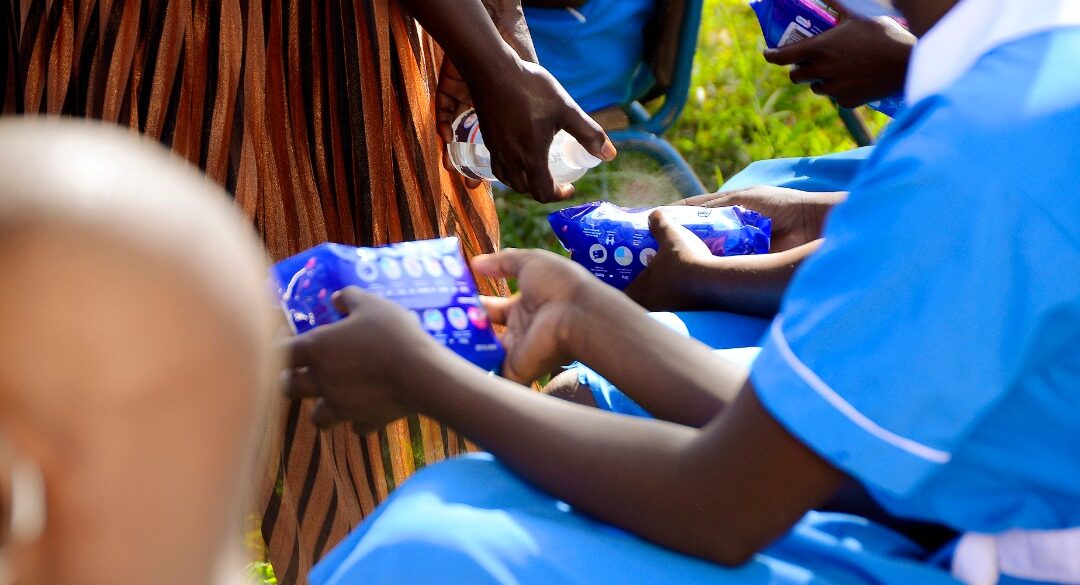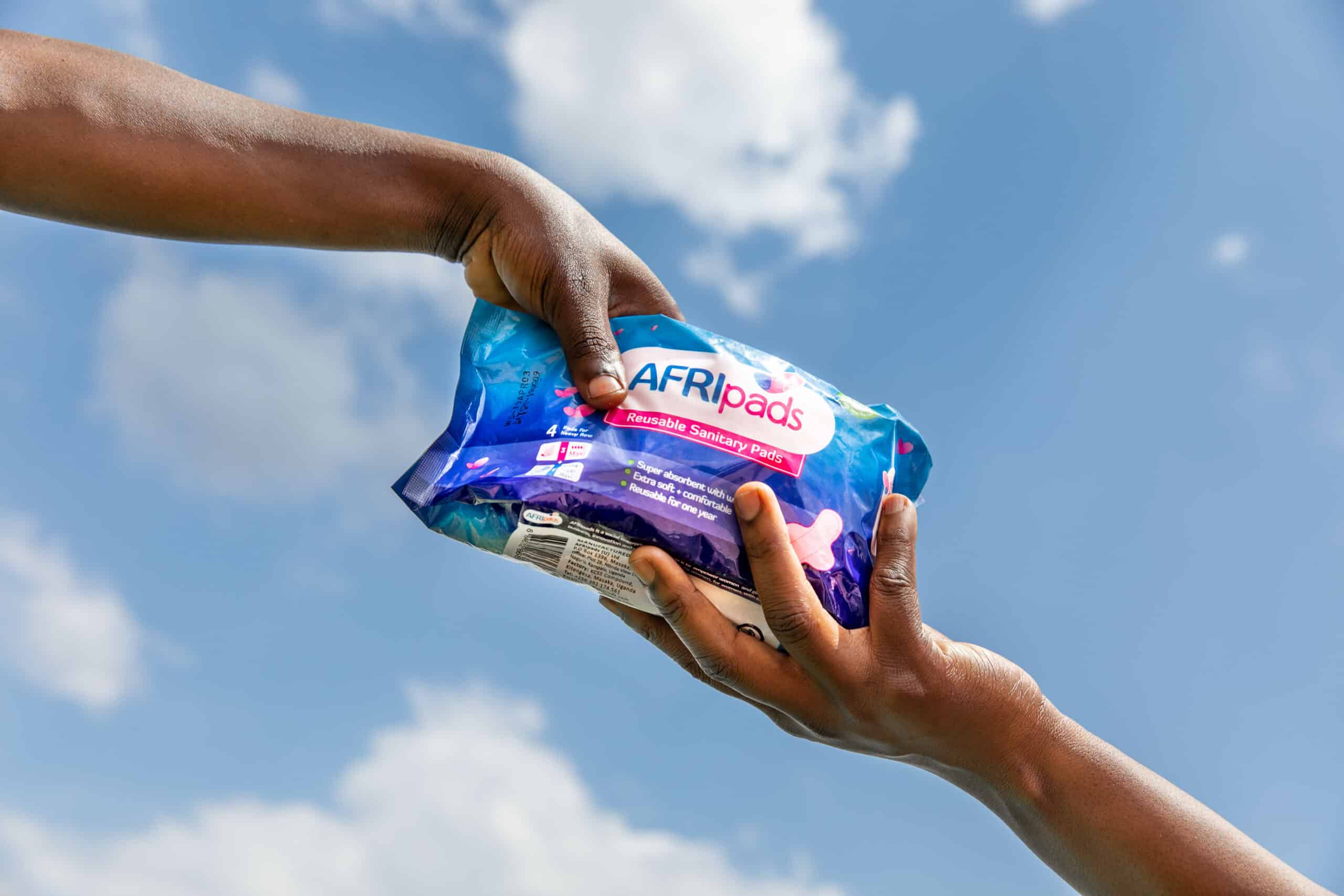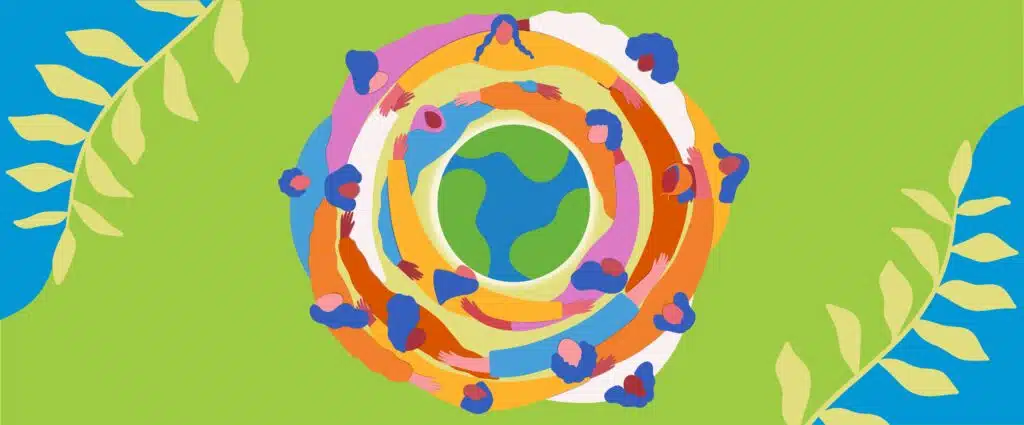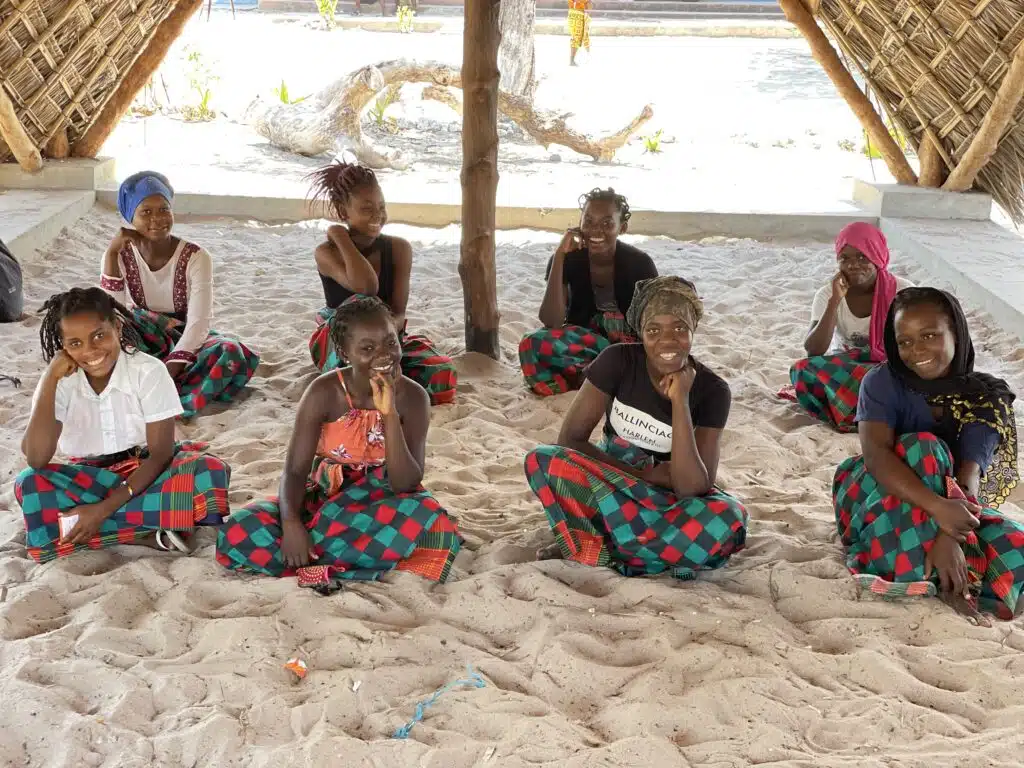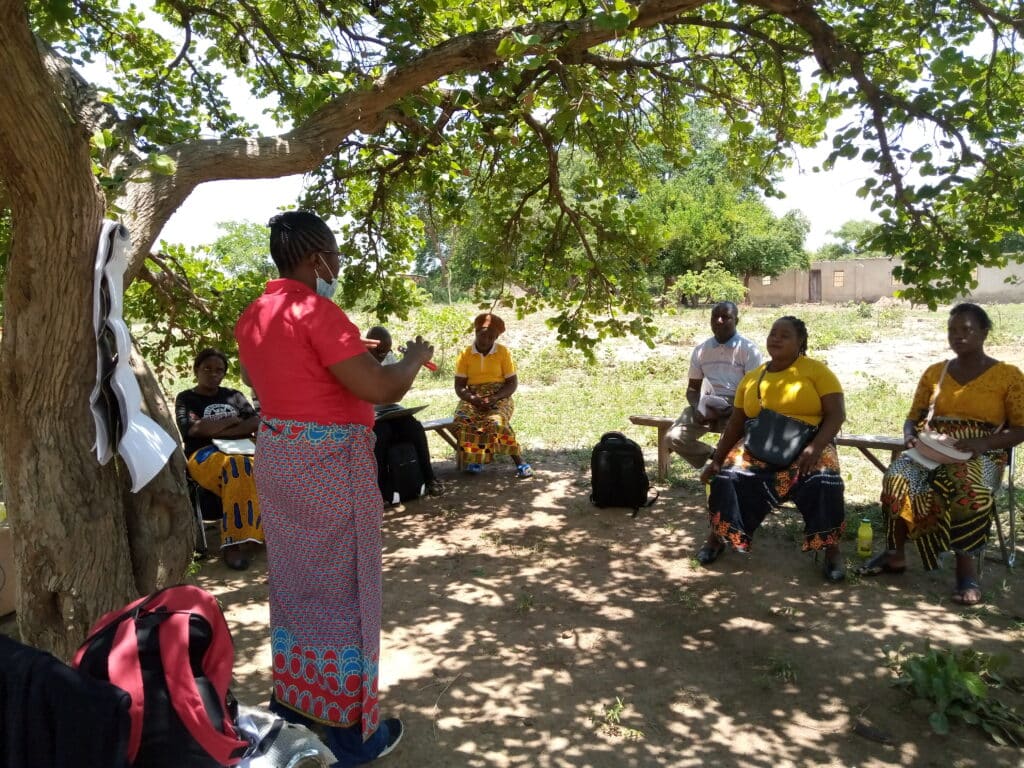This year, in a bid to showcase some of the incredible work taking place in the Menstrual Health and Hygiene (MHH) space, we begun selecting a ‘Partner of the Month’ who we felt had been particularly instrumental in driving period positive change.
Over the last five months, partners have included:
- Stichting MIA
- AFRIpads Foundation,
- French Red Cross,
- Biomedical Research and Training Institute (BRTI)
- Farm Stew International.
To round off the year, and to appropriately acknowledge quite how exceptional the achievements are from this inspiring trailblazer – we have chosen PACT Tanzania as our:
Partner of the Year
In 2020, AFRIpads and PACT Tanzania began working together to address the Menstrual Health and Hygiene (MHH) challenges schoolgirls face in Tanzania. Since then, amid a global pandemic, they have positively impacted 39,400 schoolgirl’s lives and the communities they reside in.
With funding from the President’s Emergency Plan for AIDS Relief (PEPFAR) through United States Agency for International Development (USAID), PACT and partners implement the USAID Kizazi Kipya Project. This funding enabled PACT to purchase Menstrual Kits which included the distribution of AFRIpads Schoolgirl Kit for 39,400 girls.
The Kizazi Kipya Project aims at enabling Tanzanian orphans and vulnerable children (OVC), young people affected by HIV and their caregivers to utilize age-appropriate HIV-related and other services such as Sexual Reproductive and Health Rights (SRHR) where Menstrual Health and Hygiene (MHH) falls under. These services will improve their general wellbeing.
When discussing the project with team AFRIpads, Levina Kikoyo, USAID Kizazi Kipya Acting Chief of Party, said:
“As part of the USAID Kizazi Kipya project, PACT Tanzania implement the DREAMS intervention in primary schools reaching adolescent girls age 10-14 with HIV preventive services that ensure girls stay in school and complete their education. We know keeping children in school is one of the evidence-based intervention that reduces the HIV risk among adolescent girls.
The implementation is in pre-selected councils which PEPFAR and Government of Tanzania have selected due to HIV prevalence and the need to provide services to prevent HIV infections for Adolescent Girls and Young Women (AGYW). Studies have shown most girls miss school due to menstrual period related factors thus Menstrual Hygiene Management (MHM) is one of the preventive services. Therefore, provision of MHM education and sanitary kits will help girls manage their periods and be able to attend school and complete their education effectively.”
To showcase their impact, we spoke to Maria Joseph*, one of 39,400 schoolgirls whose life was changed through PACT’s USAID Kizazi Kipya MHM intervention. Maria is a 14-year-old primary school pupil in Shinyanga Region, one of the 11 councils/ areas where PACT implements the DREAMS component of the Kizazi Kipya Project.
Did anyone talk to you about Menstrual Health and Hygiene or Sexual Reproductive Health before your first period?
No, I did not have the opportunity to talk about sexual reproductive health matters because I live with my stepmother whom I was scared to ask. My parents divorced when I was only six years old.
How did you manage your menstruation before receiving a sanitary kit from Pact?
I got my first period this year while I was at home. I was scared to tell my stepmother and so I figured things out on my own and proceeded to put on a pieceof cloth, to help contain the bleeding in hopes that it would stop after a while. So, I kept on using pieces of cloths.
How did menstruation hold you back?
I stopped going to school and playing due to the fear that my friends and teachers might witness me in this condition. I was scared to be stigmatized.
How did you feel when you received your sanitary kit from PACT Tanzania?
I was so happy! I am so grateful to Kizazi Kipya Project for giving me sanitary kit containing AFRIpads, underwear, bars of soap, and the user-manual. I promise to never miss school again because I am now secure!
For the first time in my life, I have gained an understanding on Adolescent Sexual Reproductive Health (ASRH) and self-awareness. Now, I can speak freely about issues relating to ASRH including menstruation. We also have very supportive teachers who are readily available to support and talk about different issues affecting us because they were trained through PACT.
The sanitary kits offered by PACT through the USAID Kizazi Kipya include AFRIpads Custom 8 Packs, 4 underwear, 2 bars of soap and the AFRIpads Use and Care guide in a bag.
In 2021, PACT through the USAID Kizazi Kipya intend to reach 102,000 girls with menstrual health and hygiene education and provision of sanitary kits.
USAID Kizazi Kipya project is implemented by PACT in partnership with Elizabeth Glaser Pediatric AIDS Foundation (EGPAF), Ifakara Health Institute (IHI), and Railway Children of Africa (RCA). Kizazi Kipya collaborates with Civil Society Organizations (CSOs), the Government of Tanzania (GoT) across all levels, local communities, and other stakeholders
